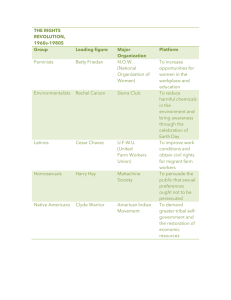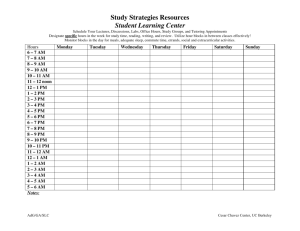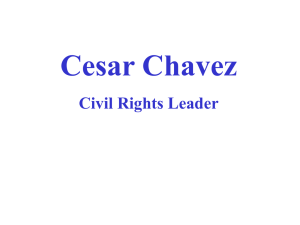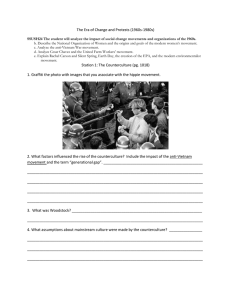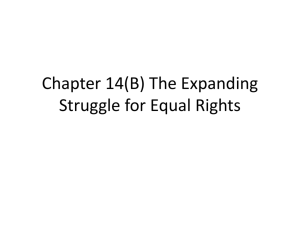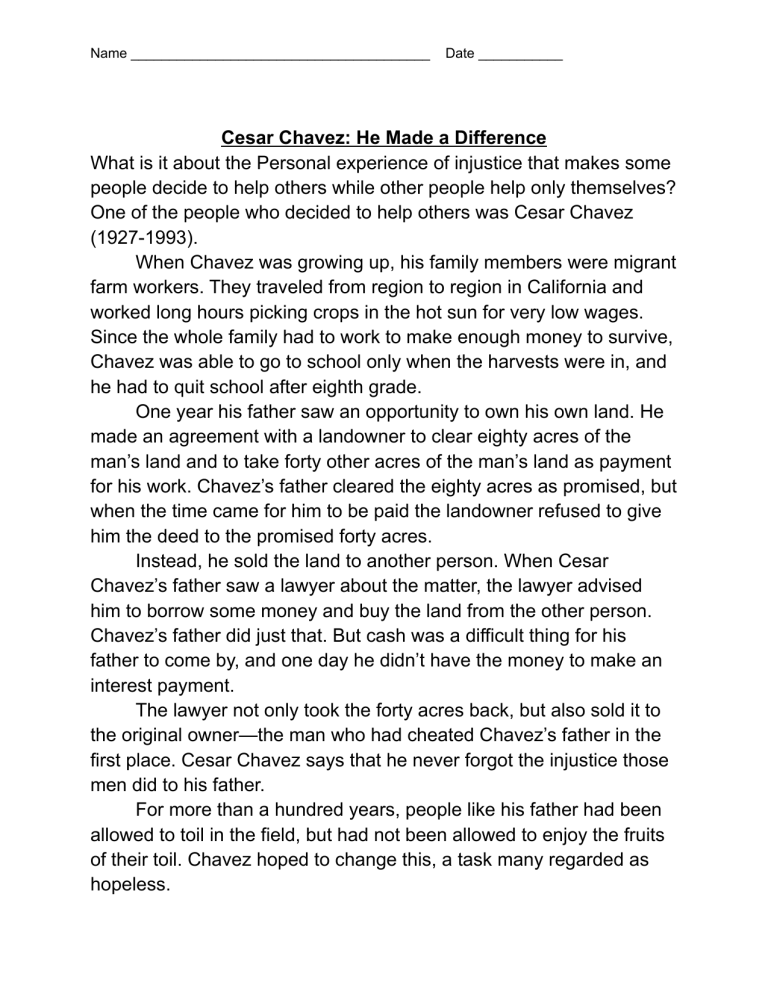
Name _______________________________________ Date ___________ Cesar Chavez: He Made a Difference What is it about the Personal experience of injustice that makes some people decide to help others while other people help only themselves? One of the people who decided to help others was Cesar Chavez (1927-1993). When Chavez was growing up, his family members were migrant farm workers. They traveled from region to region in California and worked long hours picking crops in the hot sun for very low wages. Since the whole family had to work to make enough money to survive, Chavez was able to go to school only when the harvests were in, and he had to quit school after eighth grade. One year his father saw an opportunity to own his own land. He made an agreement with a landowner to clear eighty acres of the man’s land and to take forty other acres of the man’s land as payment for his work. Chavez’s father cleared the eighty acres as promised, but when the time came for him to be paid the landowner refused to give him the deed to the promised forty acres. Instead, he sold the land to another person. When Cesar Chavez’s father saw a lawyer about the matter, the lawyer advised him to borrow some money and buy the land from the other person. Chavez’s father did just that. But cash was a difficult thing for his father to come by, and one day he didn’t have the money to make an interest payment. The lawyer not only took the forty acres back, but also sold it to the original owner—the man who had cheated Chavez’s father in the first place. Cesar Chavez says that he never forgot the injustice those men did to his father. For more than a hundred years, people like his father had been allowed to toil in the field, but had not been allowed to enjoy the fruits of their toil. Chavez hoped to change this, a task many regarded as hopeless. Name _______________________________________ Date ___________ Chavez believed that migrant farm workers needed a union to help them get fair wages and better working conditions. In 1962, he organized the National Farm Workers Association, later called the United Farm Workers of America. The union’s five-year strike against California’s grape growers drew support from around the country. Many people across the United States refused to buy or eat grapes until the strike was settled. The union’s actions were based on the non-violent principles of Mohandas K. Gandhi and Martin Luther King Jr. However, many farm workers were angry and believed that they could not win against the growers without violence. After all, the growers were using scare tactics and violence against them. Chavez met the threat of violence with a radical plan. He was willing to sacrifice his own life by going on a hunger strike to prevent violence and to ensure that the union would continue. His example won the angry workers over. By practicing nonviolence himself, Chavez inspired others in the farm workers’ movement to recommit themselves to the struggle for justice through nonviolence. When Cesar Chavez died in 1993, more than fifty thousand mourners gathered to honor him at the United Farm Workers’ field office in Delano, California. The field office is called Forty Acres.
